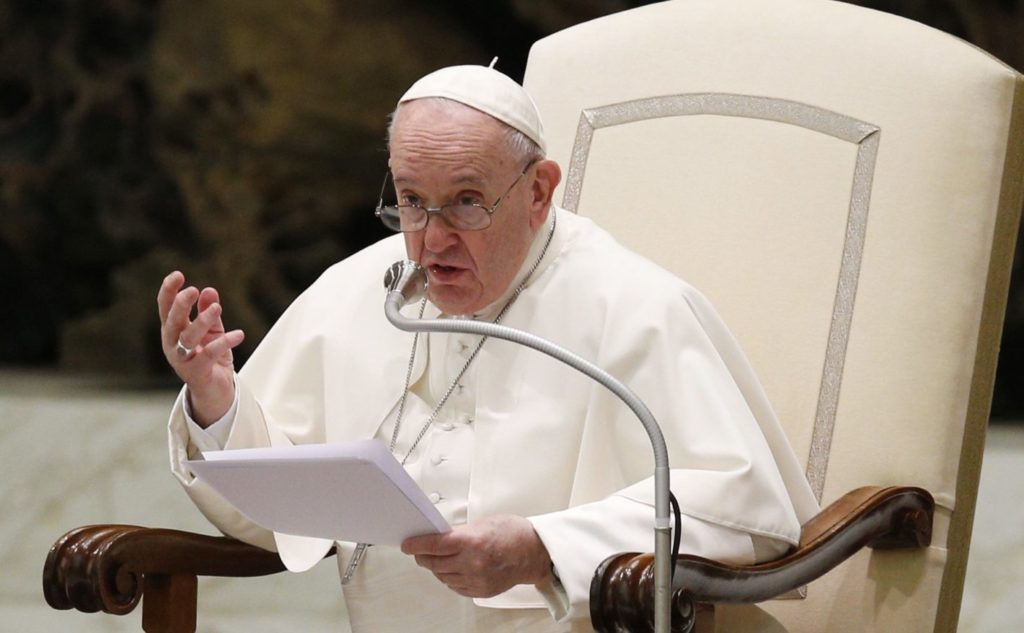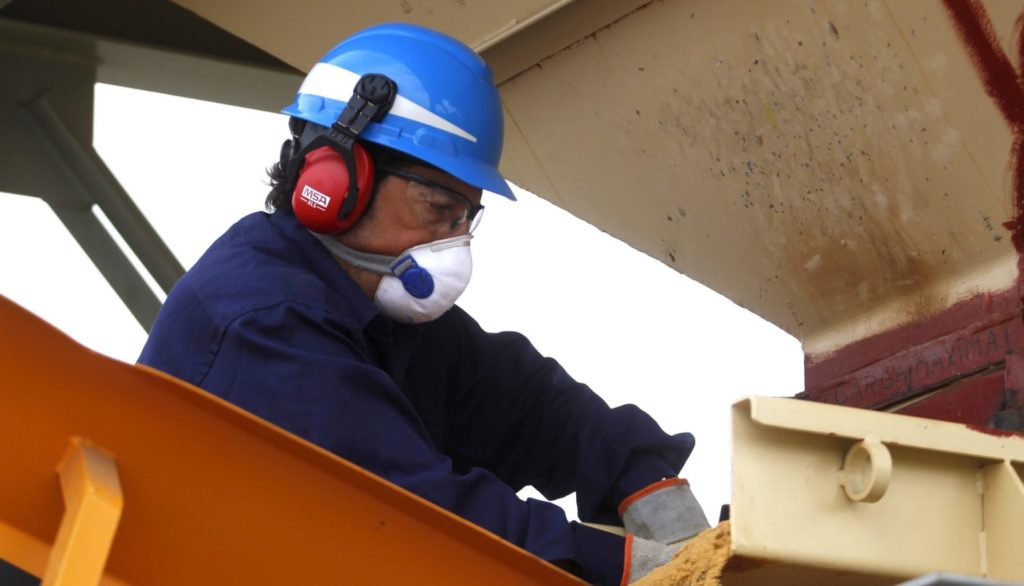"The evangelists Matthew and Mark define Joseph as a "carpenter" or "woodworker." We have recently heard that the people of Nazareth, hearing Jesus speak, wondered, "Is not this the carpenter's son?" (13:55; cfr. Mc 6,3). Jesus practiced the office of his father". This is how the Holy Father Francis began his catechesis on Wednesday, January 12, in Paul VI Hall.
The Pope reflected on the office of Joseph: "The Greek term tektonused to indicate Joseph's work, has been translated in various ways. The Latin Fathers of the Church did it with "carpenter". But let us keep in mind that in the Palestine of Jesus' time wood was used, besides for making plows and various furniture, also for building houses, which had wooden windows and terrace roofs made of beams connected together with branches and earth".
"Carpenter" or "woodworker" was therefore a generic qualification, indicating both wood craftsmen and workers engaged in activities related to construction. It was a rather hard job, having to work with heavy materials such as wood, stone and iron. From the economic point of view, it did not assure great profits, as can be deduced from the fact that Mary and Joseph, when they presented Jesus in the Temple, offered only a pair of turtledoves or pigeons (cfr. Lc 2:24), as prescribed by the Law for the poor (cfr. Lv 12,8)".

In relation to Jesus as an adolescent, the Pope says that therefore, "he learned this trade from his father. That is why, when as an adult he began to preach, his astonished countrymen wondered: "Where did this man get this wisdom and these miracles?" (Mt 13:54), and they were scandalized because of him (cf. v. 57)".
"This biographical information about Joseph and Jesus" made the Pope think, he said, "of all the workers in the world, especially those who do hard work in mines and in certain factories; those who are exploited through undeclared work; the victims of work; the children who are forced to work and those who scavenge in landfills in search of something useful to exchange... But I also think of those who are without work; of those who rightly feel their dignity wounded because they cannot find work. Many young people, many fathers and many mothers live the drama of not having a job that allows them to live serenely. And often the search becomes so dramatic that it leads them to the point of losing all hope and desire for life. In these times of pandemic, many people have lost their jobs and some, crushed by an unbearable burden, have gone so far as to take their own lives. Today I would like to remember each one of them and their families".
Work, the Holy Father stressed, "is an essential component in human life, and also in the path of sanctification. It is also a place where we experience ourselves, where we feel useful, and where we learn the great lesson of concreteness, which helps to ensure that the spiritual life does not turn into spiritualism. But unfortunately work is often hostage to social injustice and, rather than being a means of humanization, it becomes an existential periphery. I often ask myself: in what spirit do we go about our daily work? How do we face fatigue? Do we see our activity as linked only to our destiny or also to the destiny of others? In fact, work is a way of expressing our personality, which is by its nature relational".
"It is beautiful," Francis concluded, "to think that Jesus himself worked and that he learned this art from St. Joseph. Today we must ask ourselves what we can do to recover the value of work; and what contribution, as Church, we can make so that it can be rescued from the logic of mere profit and can be lived as a fundamental right and duty of the person, which expresses and increases his dignity".
The Pope wanted to pray with those present the prayer that St. Paul VI raised to St. Joseph on May 1, 1969:
"Oh, Saint Joseph,
patron saint of the Church,
you who together with the Word incarnate
you worked every day to earn your bread,
finding in Him the strength to live and work;
you who have felt the restlessness of tomorrow,
the bitterness of poverty, the precariousness of work;
you who today show the example of your figure,
humble before men,
but very great before God,
protects workers in their harsh daily existence,
defend them from discouragement,
of the denying revolt,
and from the temptation of hedonism;
and safeguards the peace of the world,
that peace which alone can guarantee the development of peoples. Amen"







